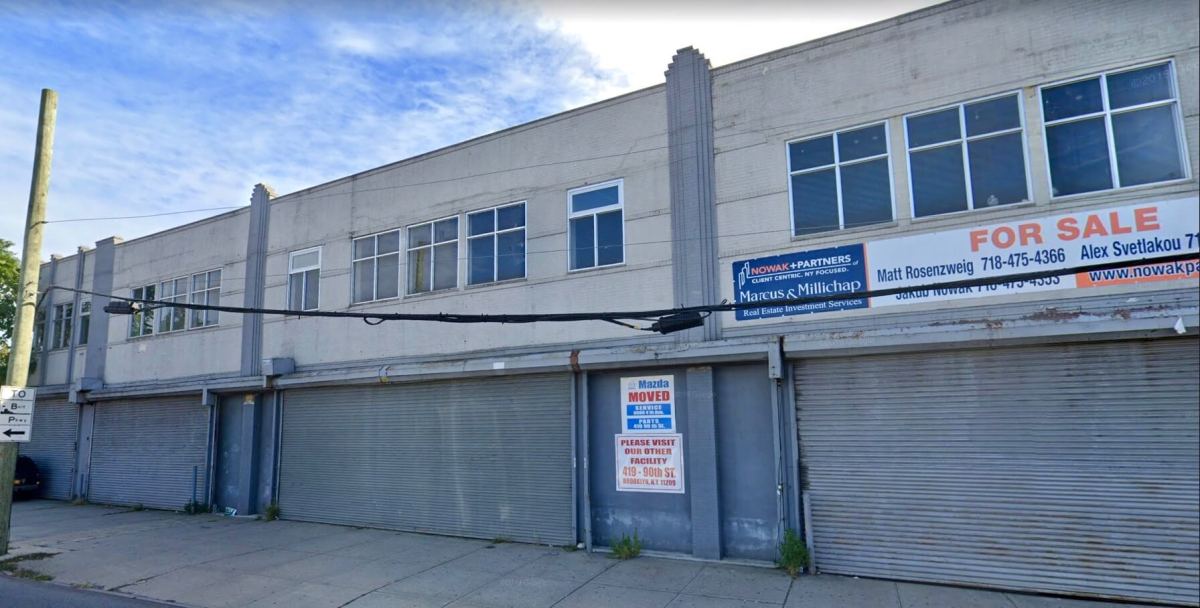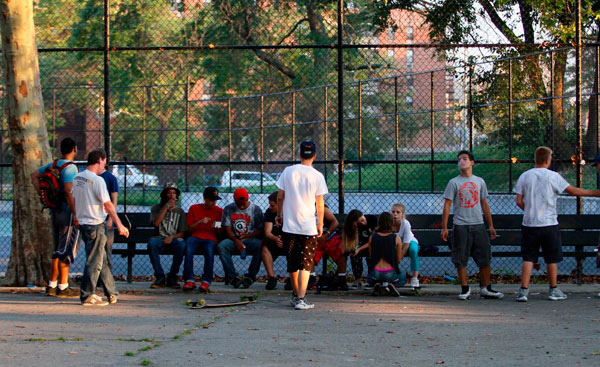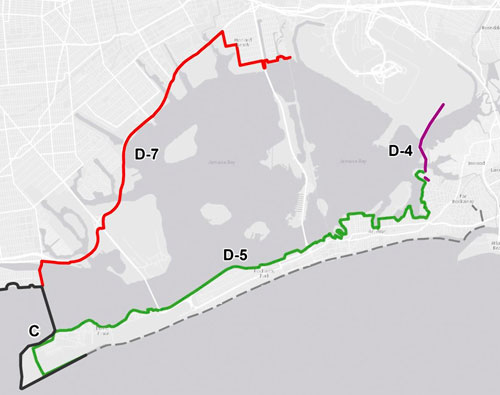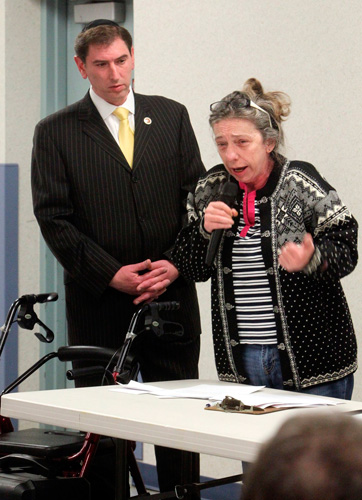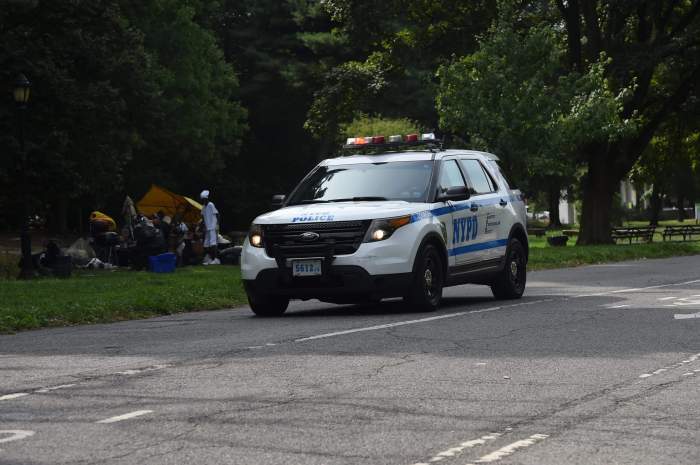A men’s homeless shelter slated for Brighton Beach has stirred controversy among locals, some of whom argue that the site is contaminated and that the shelter would overburden the area.
“The proposed facility sounds like it could be overwhelming and out-of-scale with the surrounding community, and pose an environmental health threat to the homeless population based on the history of land uses at the site,” wrote Brighton Beach activist and former Park Slope community board leader Craig Hammerman in an email.
The city’s Department of Homeless Services and the non-profit CORE announced their plans to open the 170-bed shelter for single men at 100 Neptune Ave. in late December, Bklyner first reported.
The facility would be the first shelter serving single adults to open in the area encompassing Brighton Beach, Coney Island, Sea Gate, and Gravesend, according to the Department of Homeless Services. A Coney Island hotel currently serves as a smaller shelter for families, and shelter for women and children on the west end operated by Christine Quinn’s non-profit, Women in Need, will open in two months.
The Brighton Beach shelter would prioritize housing homeless people in the surrounding neighborhoods, a spokesman with the Department of Homeless Services said.
“This high-quality facility will be the first traditional shelter in this Community District, offering 170 New Yorkers experiencing homelessness the opportunity to get back on their feet safely and closer to their anchors of life in these unprecedented times,” said spokeswoman Neha Sharma in a statement.
The proposed shelter comes as the number of New Yorkers experiencing homelessness reaches record heights due to COVID-19, according to advocates. Locals have reported an increase in homelessness around Coney Island and Brighton Beach, where unsheltered people are often seen along Ocean Parkway and have set up encampments in Kaiser Park.
Still, local leaders have pushed back against the Brighton Beach shelter, claiming that the site could be contaminated with lead, heavy metals, and other pollutants from its days as an auto body shop, which would potentially harm the shelter’s residents.
“Any construction activity runs some level of risk of creating new exposure pathways which can be a health threat to humans and the environment,” Hammerman wrote in a Jan. 6 letter to DHS’s commissioner, Steven Banks.
Local Councilman Chaim Deutsch and Community Board 13 members urged DHS to conduct remediation of the site at a private meeting on Jan. 11, Deutsch’s spokeswoman Tova Chatzinoff-Rosenfeld said. Though plans for remediation are not yet settled, DHS agreed to complete an Environmental Impact Statement that will examine the shelter’s impacts on the surrounding community, and will not move the shelter forward until the statement’s results are thoroughly reviewed, Chatzinoff-Rosenfeld added.
Locals have also raised questions about CORE, the non-profit in charge of the shelter’s programming, which has racked up nearly 300 violations from five shelters across Brooklyn, the Brooklyn Eagle reported in 2019.
“Are they going to have services that are adequate or better than adequate?” said Mariya Markh, a City Council candidate in Sheepshead Bay who began a petition demanding answers about the shelter. “Are the people that are going to be living there better off or worse off?”
A third argument, amplified by Councilman Deutsch, alleges that the shelter’s male residents could threaten the safety of local children.
“The site is just blocks away from multiple playgrounds and schools,” he said in a tweet. “Opening a homeless shelter in the midst of a residential neighborhood is the wrong move.”
Several locals have rebutted that reasoning, arguing that the pushback is prejudice in disguise.
“I question the motives of anyone that colors homeless people as criminals, drug abusers, and sexual deviants, or a danger to those around them instead of questioning how our society can turn our backs to those in need,” Sheepshead Bay local Arthur Borko told Brooklyn Paper. “Anyone who’s against this shelter is only concerned with the wrong things.”
The unused site is actually the perfect location for a shelter, another local explained.
“The area being discussed is literally an empty building near train tracks where I’ve witnessed homeless people sleeping countless times,” said Yelena Mandenberg, a life-long Brighton Beach resident. “Our homeless population are locals too, we know them, we see them every day.”
Though the new shelter does not need community approval to move forward, DHS officials will hold a public hearing about the plan with Community Board 13 sometime next week to collect local input about the project. The community board will post a date and time for the event on its Facebook page.


